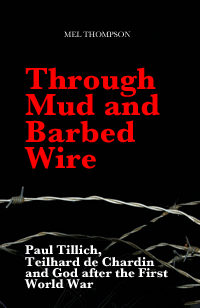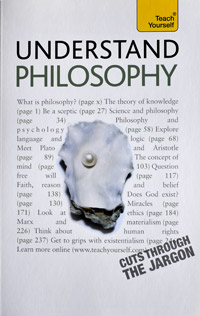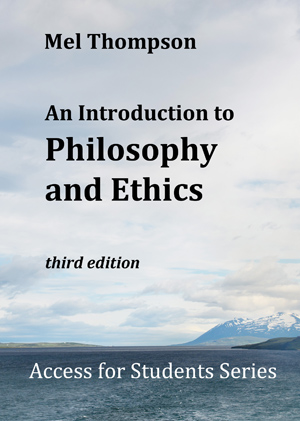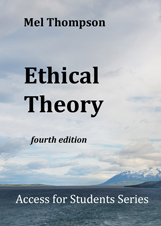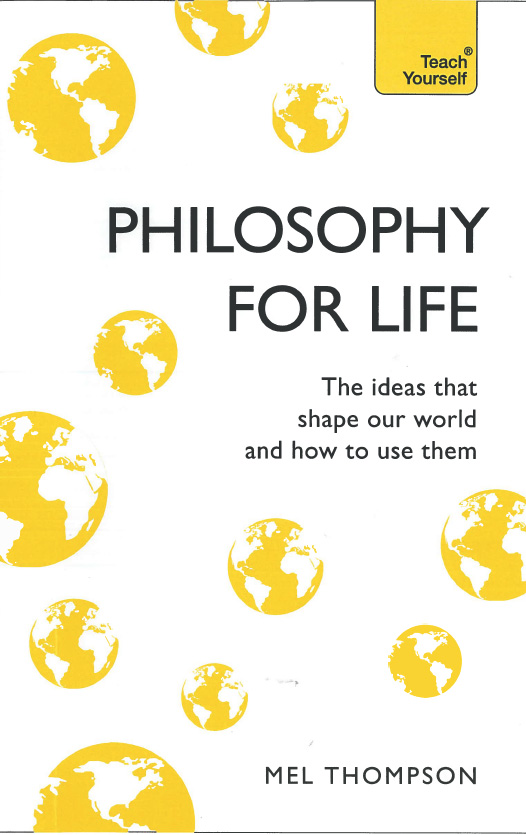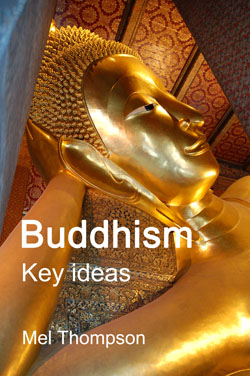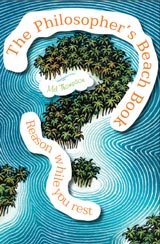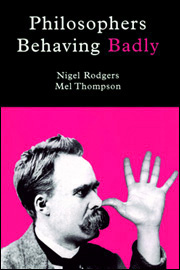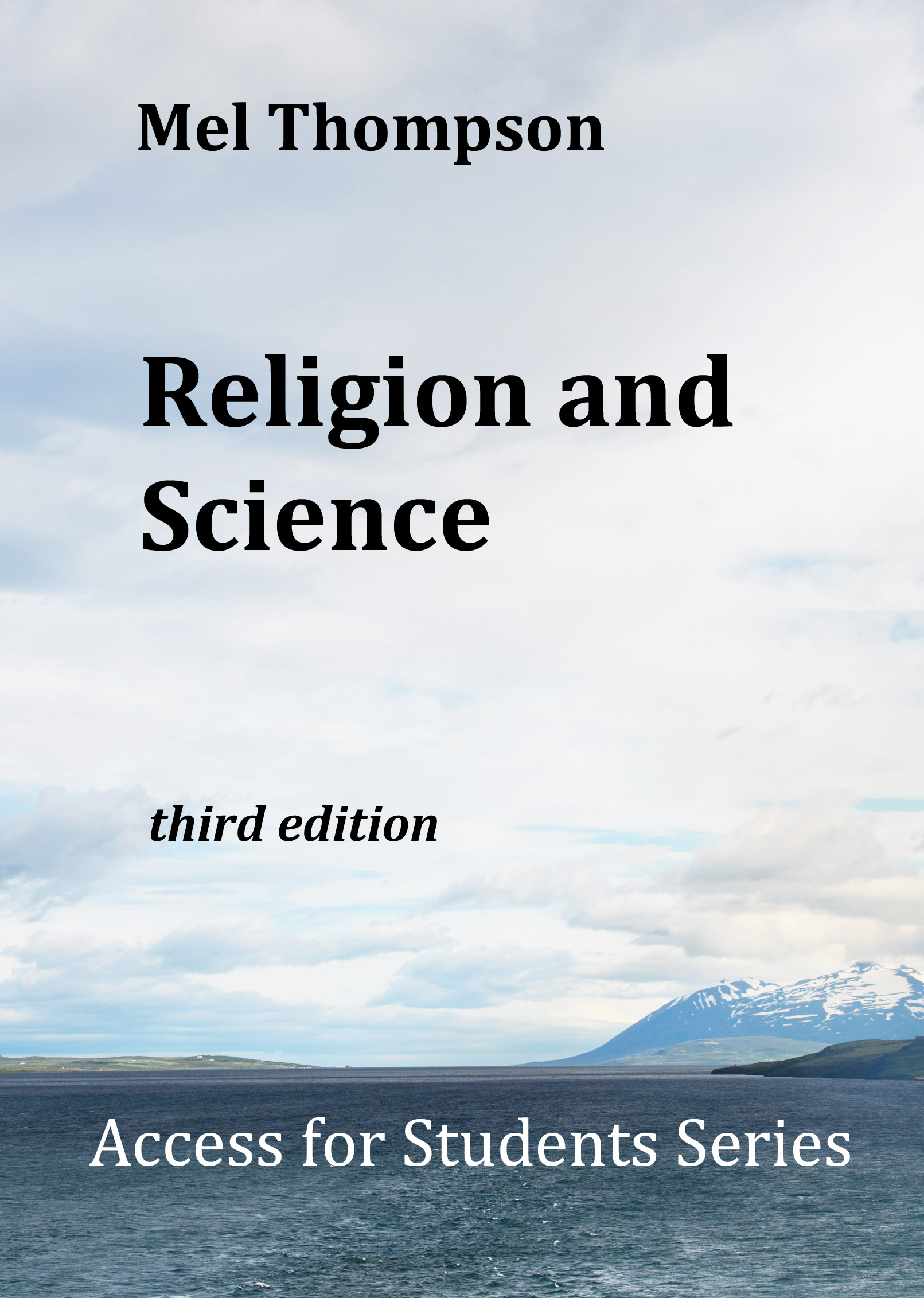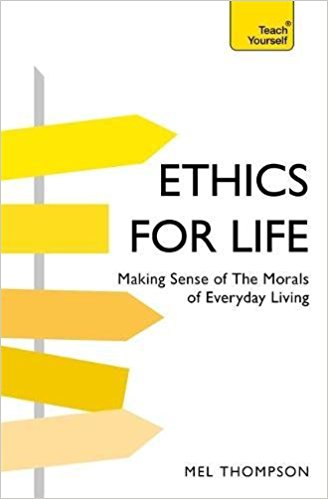Religious Experience
Contents
Religious experience is a fact in need of interpretation
What does it mean to ‘experience’ something?
Experiential and propositional approaches
Features of religious experience
Are religious experiences revelation?
The Argument from Religious Experience
Religious experience is a fact in need of interpretation
There would be no religion if there were no religious experiences. Great religious leaders and the founders of religions (e.g. Muhammad, Moses, Jesus, Buddha, Nanak, Isaiah) are described as having powerful experiences which shaped their lives and which led them to teach and preach as they did. But it is also estimated that at least one in four people have an experience at some point in their lives that could be called ‘religious’, even if they do not think of themselves as religious or are not practising members of a religion. So religious experiences are common, but we need to take care how we interpret them, because a non-religious person might well have the same experience without wanting to attach a religious label to it.
So let’s be clear: religious experiences are a fact; that’s not in doubt. What is in doubt is whether they point to any non-natural reality, or whether they are natural experiences (albeit powerful ones) to which some people will chose to attach a religious interpretation.
The special experiences that people have – experiences that may change their lives – have some common features, which have been examined by William James and others. But for most people, the ‘religious experiences’ they have are far more routine. They are the experience gained from taking part in organised religion. It’s what you get if you go into a church, temple or mosque – it’s the total experience of being there, taking part in worship and so on. If people did not find that the experience of taking part in religious ceremonies, or practising meditation, or praying, gave them some new element in their lives, they would not continue to do so. The fact that religions exist at all means that they provide experiences that their followers find valuable. They take part in worship and feel 'uplifted' by it. They may feel inspired by readings from scripture, or ritual, or music, or the building in which the worship takes place.
People may also find that religion gives new depth to ordinary experiences - they may see something that is overwhelmingly beautiful, or they may be faced with the powerful moments of birth or death, they fall in love or fall ill. How they experience these moments may be influenced by their religious beliefs, that the experiences then reinforce those same beliefs.
Religious experience is a fact. But of what is it an experience? That’s the central question; religious experience needs careful interpretation. We need to consider the main features of religious experience, including mystical and near death experience, and then turn to see how these claim to give knowledge of ‘God.’ We also need to think about whether religious experience can provide the basis for an argument for the existence of God.
But is what makes an experience ‘religious’ something that can be discussed anyway? Or is it beyond description? One option, the via negativa, argues that there is nothing positive that could be said to describe God, because he was always beyond the meaning of the words we use. Of course, if ‘God’ cannot be described, there is no logical way of proving that an experience is or is not of God. The most you might do, in trying to understand an experience is to enter into it as imaginatively as possible and conclude ‘Ah, so that’s what you mean by ‘God’!’
What does it mean to ‘experience’ something?
We get sensations, transmitted to the brain, form images and respond accordingly. That is a basic feature of all ‘sentient’ life; it distinguishes it from the inanimate. Without experience, you’d not live for long. You would not find food or run from a predator. Experience is the key to the relationship you have with the rest of the world. Experience is how you engage with the world.
But we divide up our experience. Things ‘exist’ if the ‘stand out’ against their background. We are conscious, but always conscious ‘of’ something. We experience things ‘as’ something. Therefore, when we speak about what we experience, we divide our sensations up into discrete bits and pieces and give each of them a name. That’s the start of language; we distinguish one thing from another and communicate to others what we experience. But experience is not just about data being received by sense organs. It’s also a matter of interpretation. We can be mistaken about what we see, we may fail to recognize someone, or mistake one thing for another. We may interpret a gesture as either hostile or friendly, with serious consequences if we get it wrong. We frame theories and use language in order to understand and share our experiences.
But take care. If you say ‘I have experienced X’ that suggests that you and the person you are speaking to have a common and agreed idea of what ‘X’ is. But the other person may have an entirely different idea about what ‘X is, so he or she might be quite right in challenging your claim. In actual fact, all you can say is that you have chosen to describe what you have experienced as ‘X’, where ‘X’ is a shared concept. To experience ‘something’ is to use the word ‘something’ to describe what you experience. As we shall see, that is crucially important when dealing with religious experience.
Experiential and propositional approaches
There are two general approaches to interpreting religious experience – the ‘experiential’ and the ‘propositional’. The first of these is concerned with the experience itself, and religious claims that arise from it are seen as filtered through the particular circumstances and understanding of the person who has that experience. By contrast, the ‘propositional’ approach is one that extracts from the experience certain definitive propositions, which are then claimed to be truths, backed by the authority of the original experience. In general, the philosophy of religion tends to encourage an experiential approach, since the prepositional approach does not allow an understanding of such an experience, or the tradition that springs from it, to be revised and enhanced by the experiences of others. In other words, prepositional interpretations of experience tend to be a matter of ‘take-it-or-leave-it’, with little scope for interpretation.
John Hick (see particularly his An Interpretation of Religion, Macmillan, 1989) makes an important distinction between inclusivist and exclusivist approaches. An exclusivist religion thinks that it alone can offer truths that can help a person to get in touch with the supreme reality. An inclusivist approach – which is the one that Hick wants to take – sees all religions as attempts to point to a single spiritual reality, but that none of them can claim to have the whole truth, or to exclude the truths of others.
When we come to examine religious experience, therefore, we must think carefully about whether it leads to an exclusivist or inclusivist interpretation. If a person claims that the particular experience, perhaps Muhammad hearing and reciting the words of the Qur’an, offers a unique and infallible truth – so that the words of the Qur’an are believed to be the very words of Allah – then they will have a corresponding exclusivist and absolute authority. On the other hand, an inclusivist might be happy to accept that the Qur’an contains valid religious truth, and that it is inspired, but not that it can claim truth in that absolute way.
Features of religious experience
There are many different experiences that can be categorised as ‘religious’, but here we shall simply look at some of the main features of the experience of individuals. In other words, we shall be looking at ‘the feelings, acts, and experiences of individual men in their solitude, so far as they apprehend themselves to stand in relation to whatever they may consider the divine’ (which is the way William James explains the limits of what we is to examine in his famous book on religious experience). So, quite apart from the authority of scriptures, or creeds, or public acts of worship, we shall examine the very private kinds of experience that people find life-changing, and which they describe in religious terms.
In his book On Religion: speeches to its cultured despisers (1799), Schleiermacher described religious experience in this way:
‘The contemplation of the pious is the immediate consciousness of universal existence of all finite things, in and through the Infinite, and of all temporal things in and through the Eternal.’
In other words, what religion gives is not new information so much as a new context. Things are seen as part of an infinite whole, as having universal meaning and significance. Religion offers a different kind of perspective on life.
In The Idea of the Holy (1917), Rudolph Otto introduced the idea that religious experience may be an encounter with something powerful, uncanny, weird, awesome, but also attractive and fascinating. Something like the 'creeping flesh' sensation or the shudder of fear at the prospect of encountering a ghost, whether real or on the page or screen. Otto described the object of religious experience as mysterium tremendum et fascinans – a mystery that is both awesomeness and fascinating. He spoke of this as an encounter with 'the numinous'. He also pointed out that it could not be described in ordinary language, since none of our words quite capture that special sense of something being 'holy'. However, the set of words that we use (e.g. good, loving, powerful) to attempts to describe the holy are its 'schema', and the process of grasping at words to express the holy is 'schematisation'. Religious language is just such a schema.
In I and Thou (1937) Martin Buber argued that we have two different kinds of relationships: I-It and I-Thou. I-It relationships are impersonal; I-Thou relationships are personal. For Buber the relationship with God was an I-Thou relationship, in other words, it was more like getting to know another person, than getting to know scientific facts. He described God as 'the Eternal Thou', to be seen as present in every other 'Thou' that we encounter.
When people gather together for worship, they have a group experience. They listen together, pray together, sing together; and such group activities produce a sense of belonging to a community, and of being valued as a member of it. This is, in itself, an important part of religious experience. The experience itself is induced, in that it is deliberately stimulated in order to create an overall effect. Those planning worship put together readings, pieces of music, the use of candles or special robes perhaps, in order to express and make real a feature of the religion. But although such experiences are induced, they are not magic. You cannot guarantee that two people attending the same religious event are going to respond in the same way. You simply create (or fail to create) a situation in which religious experiences may arise.
Mystical experiences
A mystical experience is one in which a person may sense the underlying unity of everything, going beyond all conventional barriers between the individual self and the external world. It can produce a very deep sense of joy, of 'being at home', of being at one with nature and of seeing a truth that cannot be put into words.
In his Varieties of Religious Experience, William James lists four qualities associated with religious experience, and particularly with mystical experiences:
1. Ineffability (they are quite different from ordinary experiences, and cannot be described using ordinary languge)
2. Neotic quality (they do provide information of a kind – a knowledge that cannot be expressed fully, and may be called 'revelation')
3. Transiency (they don’t last long)
4. Passivity (the person who has the experience feels that they are passive – they simply receive something that is offered – rather than actively bringing the experience about)
For example:
Hildegaard of Bingen, a 12th century abbess, described an experience of being carried along by God as a feather might be carried by the wind:
‘Listen: there was once a king sitting on his throne. Around him stood great and wonderfully beautiful columns ornamented with ivory, bearing the banners of the king with great honour. Then it pleased the king to raise a small feather from the ground and he commanded it to fly. The feather flew, not because of anything in itself but because the air bore it along. Thus am I...’
Lady Julian of Norwich, a 15th century English mystic, had a sense of thewhole world being cared for by God:
‘... he showed me a little thing, the size of a hazelnut, which seemed to lie in the palm of my hand; and it was as round as any ball. I looked upon it with the eye of my understanding, and thought, “What may this be?” I was answered in a general way, thus “It is all that is made.” I wondered how long it could last; for it seemed as though it might suddenly fade away to nothing, it was so small. And I was answered in my understanding: “It lasts, and ever shall last; for God loveth it. And even so hath everything being - by the love of God.”’
Near-death experiences
Many people who have been very close to death (even to the point of being pronounced clinically dead) and have subsequently recovered, describe what are termed 'near-death experiences'. These are neither rare, nor limited to people who are religious, but as a result of such an experience, the person may find that they see life differently, have a new sense of values, no longer being worried about trivia, and – most commonly – that they no longer fear death.
The experience may include an awareness of the self as floating above their nearly-dead body, looking down at the scene. The person may feel detached and remote from whatever traumas are happening to the body, happy and comfortable. There are descriptions of moving down through a dark tunnel towards some comforting light at the end. Towards the end of such experiences there may seem to be a choice, or either moving forward into a welcoming place, or of going back and being drawn down into the body again. Clearly, for those who have them, these near-death experiences are powerful and may indeed be ‘religious.’
One theory put forward to explain such experiences is that they are brought about in a brain that is starved of oxygen, and that a 'near death experience' is actually the experience of the brain shutting itself down. That may be the case, but it does not invalidate the experience nor detract from the person’s subsequent life changes. Any experience may be analysed in terms of brain function, but that is not the same as the experience itself. All that a scientific explanation can show is that there is no need to posit a supernatural cause for the experience – but even that begs the question about the validity of dividing the world up into natural and supernatural in the first place.
Are religious experiences revelation?
Revelation is the term used for knowledge that is given through supernatural agency. In other words, it claims that God has made it known. Revelation would therefore claim to be objective, rather than subjective, and absolute rather than relative, and it would therefore be ultimately authoritative. Now, religious experiences tend to be authoritative for those who have them, but not necessarily for others, and it is certainly mediated through the particular circumstances and characteristics of those who have them. Revelation may therefore be claimed as something superior to the knowledge given by reason an experience; it is encountered directly, not filtered through the limitations of normal human awareness.
But the idea of revelation raises problems for philosophy:
1) Knowledge can only be articulated using words that have a commonly agreed meaning – without that, it would not make sense, however overpowering the original religious experience. Once written down, a revelation can be reduced to a set of propositions that can be assessed rationally. It is this last process with which philosophy is traditionally concerned. How can it be absolute, if it depends on our limited language and concepts?
2) The power of the revelatory experience is such that the person concerned is unlikely to be dissuaded of his or her new-found knowledge by rational argument. The ‘revelation’ is used to evaluate everything else, so if human reason says that the revelation is meaningless or wrong, that only means that there is something wrong with human reason! There’s no arguing against revelation, just because revelation does not accept the judgement of reason.
3) Just because something is known through revelation, does not mean that it cannot also be known through the normal process of experience and reason. It is probably unwise, therefore, to dismiss the claim that something has been revealed, simply on the basis that it was possible to know it anyway.
There is a more general issue with revelation, namely that it assumes what it sets out to prove. IF there were an unseen world, beyond the reach of reason and evidence, only ‘revelation’ could give us access to it. But why should we assume that there is such a world in the first place? Claiming that something is a revelation is only logically valid for those who already believe that revelation is possible! The argument becomes circular.
Conversion
Some people have had experiences that have totally changed their whole life and the values by which they live. The classic example of this is St Paul on the road to Damascus. He changed from being a persecutor of Christians to being a Christian himself. More common is also the rather longer-term conversion of a person or society as they, or it, gradually comes to accept the beliefs and values of a new religion. Without any one dramatic moment, a person may find that their life and ideas have changed – they have been converted.
In addition to this, there is a form of conversion where a person does not actually change their beliefs or loyalties, but becomes far more deeply involved in them. In other words, the conversion is in terms of the priority and value that the religion has. Some things that have previously been accepted nominally now become crucial to a person’s way of life. Truths have become ‘religious’ by becoming more important. The theologian Paul Tillich referred to religion as a matter of ‘ultimate concern’ as opposed to the more superficial and partial concerns that tend to swamp our day-to-day living.
William James, in The Varieties of Religious Experience, sees a conversion experience leading to:
* loss of worry
* truths that were not known before
* the sense that the world has objectively changed.
In other words, a person who has the experience of conversion find that there is a change in their experience of the external world as well as a change in their own self-awareness.
The self becomes more integrated and happy, as a result of new way of seeing things.
The best way to test the validity of a conversion experience is to look at how the person who has it subsequently deals with the world. Do they behave differently, or appear to think of themselves differently, as a result of the experience? If they don’t, then it is difficult to see how they could have had an experience of the sort that William James describes.
The Argument from Religious Experience
Every experience involves the interpretation of sensations. On the one had stands the thing experienced; on the other, the interpretation and understanding of what is experienced. The former is objective, the latter subjective. It is important to keep this in mind, because a ‘propositional’ approach to religious experience suggests that there are objective truths that can be known through it. So, for example, a person who has had a religious experience may therefore want to use it as the basis for the claim that ‘God exists.’ But does that necessarily follow?
Things are experienced ‘as’ something. In other words, our minds take the information supplied by the senses, and attempt to make sense of it. Religious experience involves both objective and subjective elements. The crucial thing, however, is that – if God is beyond the limited, physical world of objects that are known through the senses – he cannot be experienced directly. There cannot be any set of sense data that correspond to ‘God’ and to nothing else. Hence, the problem with the Argument from Religious Experience is saying how – if at all – those experiences that are important for religion can also be used as evidence in an argument for the existence of God.
Human beings have only five senses and all that they know about the world comes through one or more of them. Kant argued that, since God is not part of that phenomenal world of objects apprehended through the senses, we cannot have direct knowledge of him. This rules out religious experience as a way of demonstrating the existence of God, since whatever is experienced is part of the phenomenal world, not therefore it cannot, by definition, be God.
If God is infinite, he cannot be located in a particular place, nor does he have boundaries. You cannot point to where God is not, if he is infinite. Yet all our experience is of particular things in particular places; they are known only because they have boundaries. Our senses divide reality up into segments to which we can give names: this is one thing; that is another.
So arguments about whether or not an experience is of God, require a prior knowledge of what God is. In other words, since all experience involves interpretation (we experience 'as'), our prior understanding of ‘God’ will be used to interpret whether this experience is an experience of God or not.
Therefore, in order for religious experience to be part of a logical argument about the existence of God, there needs to be an agreed definition of what is meant by the word ‘God.’ Otherwise, there will be no way of knowing how the person is interpreting their experience.
In The Varieties of Religious Experience, William James took a psychological approach to his subject. He made no attempt to argue from his accounts of religious experiences to any supernatural conclusions but was simply concerned to examine the effect of religion on people's lives. In effect, James was pointing to religious experience as a phenomenon that can have a profound effect on people’s lives. It one sense, it is the ultimate argument, for it is self-authenticating for the person who has it. On the other, James admitted that it did not offer any logical proof of the existence of God.
James was particularly concerned with mysticism, and it is difficult to know how one would either prove or refute anything that a mystic said about his or her experiences. If what is being described is a state of mind, then it cannot be contradicted, any more than one might challenge the honest claim that a person feels happy or unhappy. Claims can only be proved true of false with reference to empirical facts that can be checked. When it comes to mystical experience, all rational thought is transcended. It is not a matter of thinking, but of encountering and knowing.
In fact, James did not speak of ‘God’ but of ‘the spiritual’ or ‘the unseen order’ or the ‘higher’ aspects of the world and the self. He was definitely against any form of dogmatic theology. Hence it is only in the most general of terms that James can be said to offer any kind of argument for the existence of God – it would be better to say that he simply points to the phenomenon of the experiences people have of what they feel to be a ‘higher’ order of reality. What he does hold to be important, however, is that human beings should establish a harmonious relationship between their earthly and higher selves – which he sees as able to fill people with happiness, love, humility and peace, all of which he sees as being very ‘healthy minded’.
Richard Swinburne pointed out that religious experiences are authoritative for the individual who has them, even though other people, hearing an account of the experience, may remain sceptical. What is clear is that the experience takes a person beyond the rational arguments. However, Swinburne is not arguing for religious experience to be conclusive proof of God, all he is saying is that you need to balance out the probabilities when it comes to belief. Unless one has reason to doubt the testimony of a witness, one should – on balance – accept it, unless it starts to conflict with other things that are known. By the same token, one should accept the testimony of those who have religious experiences, unless one has some reason to question what they are saying.
But there are other ways to interpret religious experience and the religious ideas and practices that stem from it:
- Freud noted parallels between religious behaviour and those of his patients who had obsessional neuroses - e.g. those who were continually washing themselves, yet never felt clean. He called religion a 'universal obsessional neurosis'. In other words, religious phenomena can originate in subjective human needs and neuroses, rather than coming from a God who is perceived as existing objectively. On the other hand, it can be argued that just because religion may deal with the issue of guilt, for example, or the lack of a human father later in life, that it therefore has no objective basis.
- Sociologists like Durkeim and may point out the social function of religion. It may mark particular stages in life and acceptance of an individual into society. It may be a way of holding a society together and giving it an identity and sense of purpose.
- Similarly, political thinkers may take the Marxist view that religion is a social construct, devised by those with power to keep the working people in their place, with rules about obedience and promises of heaven after this life.
You need to take these into consideration before jumping to conclusions about what can be ‘proved’ by religious experience.
But remember also that there is a world of difference between personal conviction and logical proof. On the basis of your own experience you have all sorts of values and ways of interpreting the world. If these work for you, that’s fine. You may also argue that, by adopting the same values and interpretations other people would also receive benefit. That’s also fine – they can try them and see. But it is not the same as some objective, scientific or logical proof. It may be none the worse for that – indeed, it may be important just because it is not objective, scientific or logical (we seldom fall in love, leave home or take up a hobby on the basis of an objective assessment or scientific proof).
The argument from religious experience may therefore be interesting (in that it shows what people mean by ‘God’) and persuasive (particularly for the person who has the experience), but can never be a logically compelling argument.
© Mel Thompson


